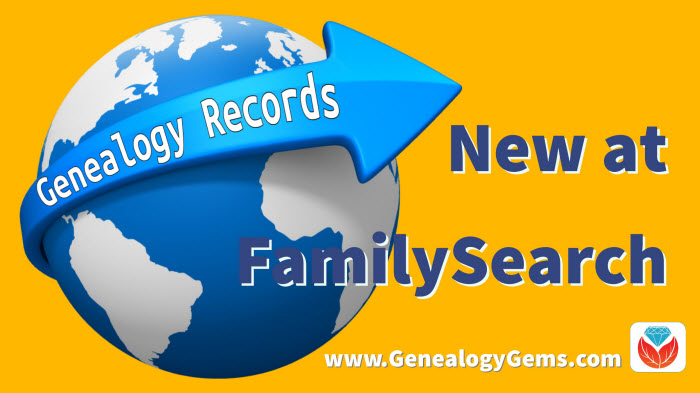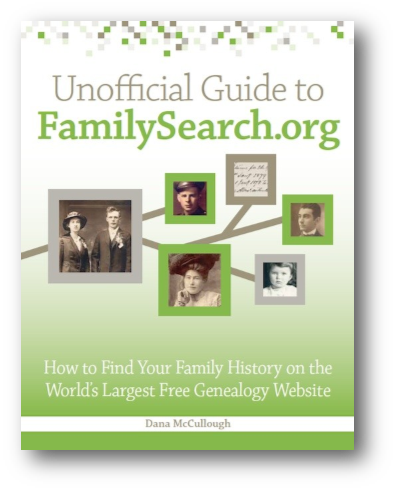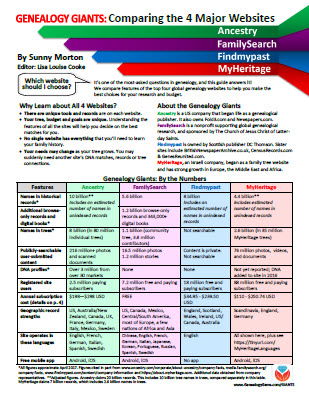How to Get Organized and Put Your Family History Household in Order
From Guest Blogger Denise May Levenick, a recent guest on The Genealogy Gems Podcast:
If you are buried under a mountain of genealogical clutter, take note that January is National Organizing Month and a great time to put your Family History Household in order. When Lisa and I chatted for Genealogy Gems Podcast Episode 144, our conversation reminded me that we can all use a little help keeping the paper tiger under control.
This excerpt from my new book How to Archive Family Keepsakes takes a look at practical strategies to help you Break the Paper Habit. I hope it helps you get a start turning your paper mountain into a manageable molehill.
7 Steps Toward a Paperless Genealogy Office
If you are thinking about converting from paper to digital documents, consider the two types of documents you work with — Archive Originals and Working Documents — and take steps to accommodate preservation and efficiency for both.
Aim to minimize paper copies and maximize the efficiency of your computer file system. Minimize confusion by using the same file naming scheme and file folder organization for converted paper files and for new electronic documents.
1. Pick a Start Date. Businesses recognize the value of knowing exactly when they shifted from paper to digital; it’s easier to find things.
Select a meaningful date, if possible, your birthdate, January 1st, Tax Day, anything that will be easy to remember. Begin saving new information as digital documents and filing according to your file scheme. As you have time, work on digitizing past documents.
2. Print Less. Whenever you need keep information, choose to save a digital version instead of printing a copy.
3. Use a Consistent File Naming Scheme. If you’ve been using a computer for any length of time you probably already have a file-naming scheme in place. If not, or if you feel like you need a better system, investigate different options and find one that works for you before beginning a full-scale digital file management program. Find more information on file-naming schemes later in Chapter 13.
4. Purge the Paper — No doubt, you have a considerable amount of paper sitting on your desk right now. Your Digital Birthday is here; how do you handle the paper pile? You have two choices, digitize or purge. Do you really need to keep the paper copy? Is the information readily available online or in a public resource? See How to Archive Family Keepsakes, Chapter 9 for specific strategies on moving toward a paperless office.
5. KISS, Keep It Super Simple — Keep your system easy and intuitive. Don’t be tempted by fancy, hard-to-remember schemes. Develop a workflow that suits your own personal style, and tweak it until it’s nearly effortless.
6. Post a Workflow Cheat Sheet — Post a simple list to remind you of your paper workflow and file-naming scheme. This can be a real timesaver for those of us who research in bits and spurts on weekends and vacations.
7. Celebrate Your Digital Birthday — Every year on the anniversary of your digital switch, evaluate your current system and upgrade if necessary. This is especially important if you use CDs for external storage; CDs deteriorate over time and older formats should be upgraded to remain compatible with new operating systems.
This is also the perfect time to check your Archive Document storage. Look for any sign of mold, mildew, or bug infestation. Air out your closets. Do random spot checks of different file boxes and folders. Schedule any needed preservation or restoration projects.
Listen to Genealogy Gems Podcast Episode 144 to hear Lisa Louise Cooke interview Denise about her new book and share ideas on preserving family keepsakes.
Join the Blog Tour
Join the Blog Book Tour for How to Archive Family Keepsakes January 10-26, 2013 for author interviews, book excerpts, giveaways, and more. Visit the Blog Book Tour Page at The Family Curator for the complete schedule.
Proceeds from the sale of How to Archive Family Keepsakes during the Book Tour will help fund the 2013 Student Genealogy Grant founded in 2010 in honor of Denise’s mother, Suzanne Winsor Freeman.
Blog Book Tour Giveaways
It’s easy to enter to win a free copy of Denise’s new book or one of the weekly giveaway prizes. All you have to do is leave a comment to the Blog Tour Post hosted at one of the official tour blogs. Random winners will also be selected from social media comments on Twitter, FaceBook, and Google+.
Comment on daily Book Blog Tour Post
Tweet the Tour Twitter @FamilyCurator #keepsakebooktour
Share the Tour on FaceBook, Google+, Goodreads.
Each blog tour post comment gives you one chance to win; one entry per post per day, please. Leave a comment at each stop on the blog tour and increase your chances of winning. The lucky names will be announced each Saturday during the tour at The Family Curator.
About the Author
 In every family, someone ends up with “the stuff.” Denise May Levenick is a writer, researcher, and speaker with a passion for preserving and sharing family treasures of all kinds. She is the creator of the award-winning family history blog, The Family Curator www.TheFamilyCurator.com and author of the new book How to Archive Family Keepsakes: Learn How to Preserve Family Photos, Memorabilia and Genealogy Records, (Family Tree Books, 2012).
In every family, someone ends up with “the stuff.” Denise May Levenick is a writer, researcher, and speaker with a passion for preserving and sharing family treasures of all kinds. She is the creator of the award-winning family history blog, The Family Curator www.TheFamilyCurator.com and author of the new book How to Archive Family Keepsakes: Learn How to Preserve Family Photos, Memorabilia and Genealogy Records, (Family Tree Books, 2012).
Disclosure: This article contains affiliate links and Genealogy Gems will be compensated if you make a purchase after clicking on these links (at no additional cost to you). Thank you for supporting Genealogy Gems!



